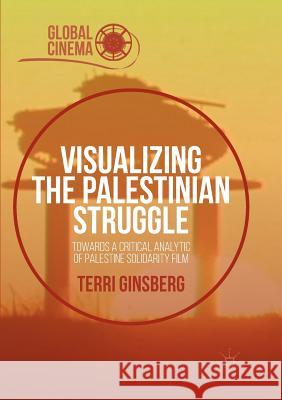Visualizing the Palestinian Struggle: Towards a Critical Analytic of Palestine Solidarity Film » książka
topmenu
Visualizing the Palestinian Struggle: Towards a Critical Analytic of Palestine Solidarity Film
ISBN-13: 9783319819655 / Angielski / Miękka / 2018 / 157 str.
Kategorie:
Kategorie BISAC:
Wydawca:
Palgrave MacMillan
Seria wydawnicza:
Język:
Angielski
ISBN-13:
9783319819655
Rok wydania:
2018
Wydanie:
Softcover Repri
Ilość stron:
157
Waga:
0.21 kg
Wymiary:
21.01 x 14.81 x 0.94
Oprawa:
Miękka
Wolumenów:
01
Dodatkowe informacje:
Wydanie ilustrowane











